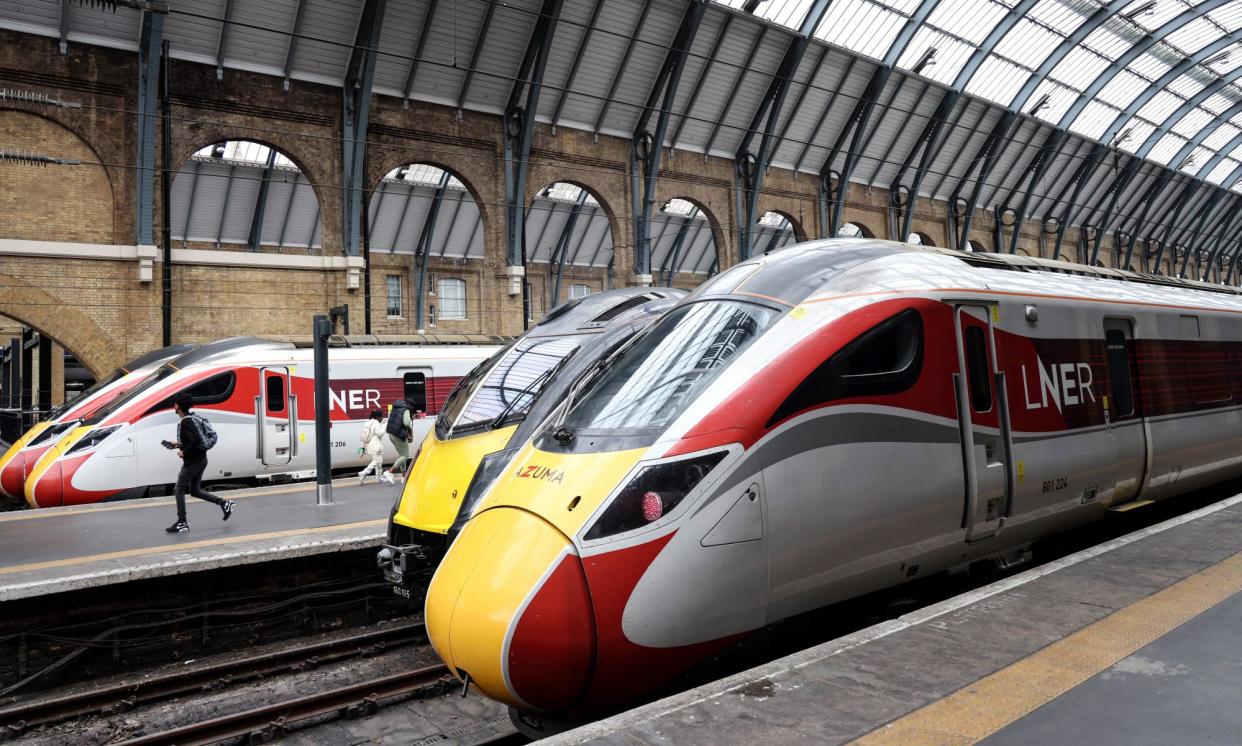Only 40 LNER intercity rail services to run on Saturday as train drivers strike

A train drivers’ strike will lead to almost three in four services being cut on Saturday on LNER, which operates intercity trains between London, York and Edinburgh.
Members of the Aslef union will take industrial action for 24 hours on 20 April – and also ban overtime during the weekend – in a dispute over terms and conditions, separate to the wider pay row that has led to strikes at all national rail operators across England.
LNER expects to run about 40 services on the east coast mainline on Saturday, just over a quarter of its normal schedule.
Mick Whelan, the general secretary of Aslef, said: “Train drivers are fed up with the bad faith shown by this company … and we are not prepared to put up with being bullied and pushed about by a company that thinks it can break agreements whenever it feels like it.”
While the drivers’ action is not directly related to the wider rail pay disputes, which led to the biggest series of strikes in a generation, more disruption could come after the RMT union rejected a pay rise from Network Rail. The state-owned company, which runs the track and infrastructure, has offered a 3.5% pay rise to its employees, including signallers and maintenance workers.
The RMT said it had rejected the offer, maintaining that it fell below the standard benchmark for inflation used in rail pay negotiations – the November retail prices index figure – which was 5.3%.
The union’s general secretary, Mick Lynch, said: “Network Rail is once again making an offer that represents a cut in living standards as pay is not keeping up with the rising costs of rent, mortgages, energy, food and other essentials. As a result, RMT is calling for urgent fresh negotiations and a much-improved offer for this year.”
A Network Rail spokesperson said it had put forward a 3.5% unconditional offer with other benefits that was “fair and represents a significant increase given current and forecast rates of inflation … We expect negotiations to continue.”
It is understood that even though Network Rail has more control of its budget than train operating companies – which have not been able to offer drivers more money – the organisation is still under pressure to keep pay rises down in line with the wider public sector.
The RMT has, however, highlighted the 5.5% award given to MPs last month. The union’s members at Network Rail settled their strike action last year for a two-year deal worth 9%, below inflation.

 Yahoo News
Yahoo News 
